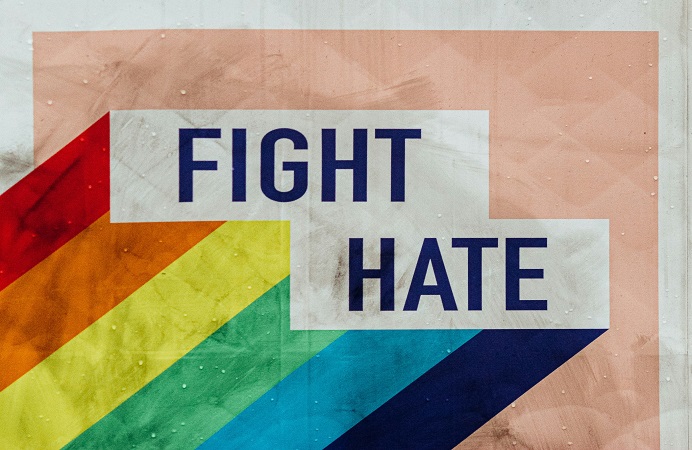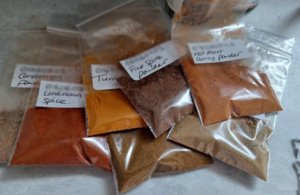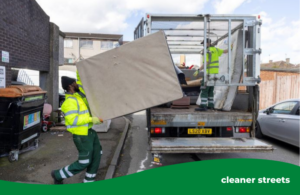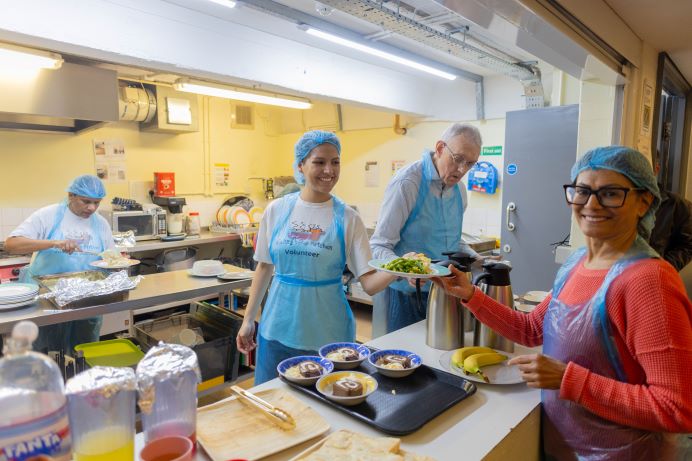This week (12-19 November) is Interfaith Week, while November is also Islamophobia Awareness Month. Ealing Council remains committed to confronting hate crime and promoting a culture of acceptance and appreciation of differences and diversity across the borough.
Perpetrators of hate crime of all kinds are a corrosive and damaging exception to the values of tolerance, solidarity, and mutual respect that Ealing upholds.
The theme of this year’s Islamophobia Awareness Week is #MuslimStories. Below, local resident Aisha – not her real name – shares her story, including the positive changes she has made to help tackle hate crime.
Aisha’s story
“Growing up, I didn’t know that there was a word for discrimination; I knew what it was, but I used to think that only I or people who looked like me could see it. From my earliest memory I remember witnessing my neighbours throwing stones at my mother – calling her a terrorist. I didn’t know what terrorist meant and didn’t understand why my neighbours were so angry. You would think that living in such a diverse area of London that you would be safe from discrimination, but unfortunately that was not the case.
“After a few years, we moved from that area and Islamophobia became a distant memory for a while. It was not until the 2017 attack on Westminster that I was confronted with Islamophobia again. Someone had committed an atrocity in the name of my religion which meant that led to Muslims completely unconnected to the attack were targeted, including me. The following week I was assaulted by an individual on the train – a man tugged my headscarf, verbally assaulted me, and insulted my religion, calling it evil. Luckily, there were many bystanders who intervened and contacted the police.
“After the incident I struggled to understand why someone would do this to me. I was not a terrorist, not a criminal, and not someone who followed an ‘evil religion’. I suffered many sleepless nights and anxiety because of this hate crime and spent days in fear of it happening again. London no longer felt like my home. Media outlets did not make this any better and revealed to me the darker side of our collective consciousness – one tainted by stereotypes, misinformation, and fear.
Support for victims of hate crime
“I sought emotional support from a charity that provides tailored support to victims of hate crime. It was there that I was able to build networks of support and meet countless women who shared similar experiences. We shared coping mechanisms, empowerment tactics, and personal safety tips, and connected with many people from all walks of life that have faced different forms of hate crime. It was because of this that I dedicated myself to eradicating hate by using education as my tool. As Nelson Mandela said, “education is the most powerful weapon which you can use to change the world”. I learnt that by fostering environments that encourage learning about different cultures and religions, that everyone can dismantle misconceptions that fuel fear.
“I started volunteering at a charity organisation and delivered a series of workshops that raise awareness of hate crimes to young people. Through education and awareness, I was able to challenge the stereotypes that contribute to Islamophobia and other forms of discrimination.
“Over the years I have faced the same trials that many religious people encounter when their faith is misunderstood. Yet my spirit remained unbroken; rather than harbouring resentment, I chose education as my weapon against ignorance. I became a storyteller, not just of my own experiences but for many who share my story.”
‘A single hate crime is one too many’
Councillor Jasbir Anand is Ealing Council’s lead member for tackling inequality. She said: “Aisha’s story is very moving, and unfortunately all too common. A single hate crime is a hate crime too many, and at the council we will do everything in our power to ensure that the people who perpetrate these crimes are caught and punished.”
Get help
Like other hate crimes, Islamophobia can often go unreported, but telling the police or other organisations is the only way to ensure there is an accurate picture of what is happening so that it can be tackled. You can do so via the police directly, or by contacting Tell Mama.
- Report hate crime via the police by calling 101 or visiting www.report-it.org.uk
- Always call 999 if a crime is in progress or there is immediate danger.
- Tell MAMA about Islamophobia at www.tellmamauk.org





